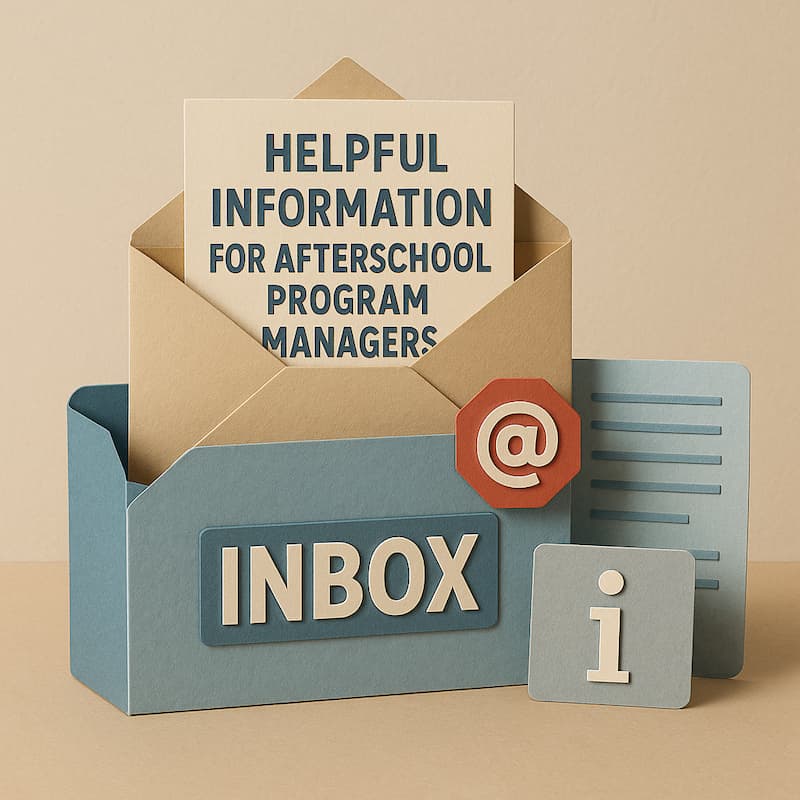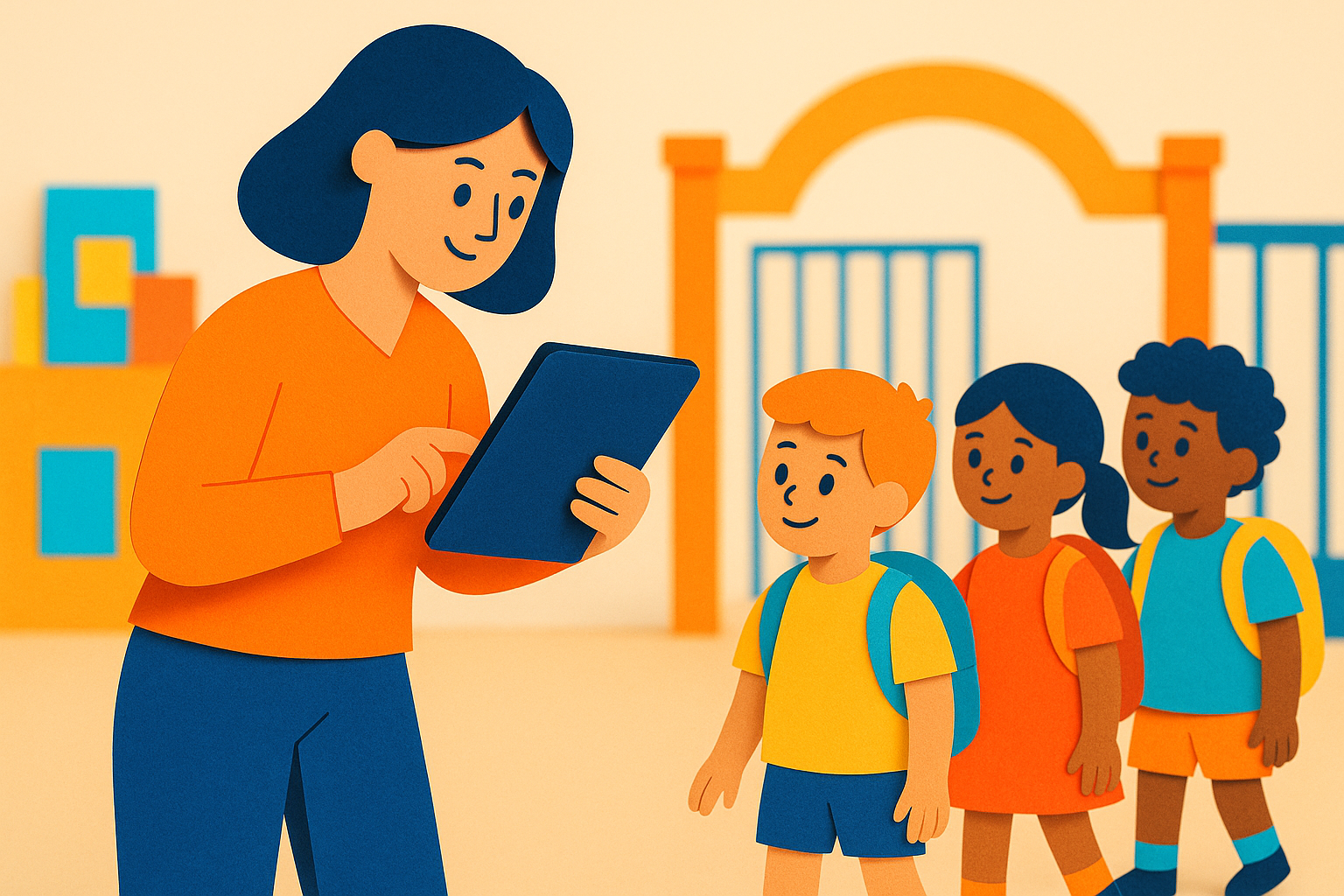The 21st Century Community Learning Centers (21st CCLC) initiative offers great opportunities for afterschool programs, but it comes with a complex set of rules. Don’t worry, though – with the right approach, you can turn these regulations into a guide for creating an excellent program.
Understanding and following 21st CCLC rules is essential for afterschool programs. It helps you get funding, run a high-quality program, and make a real difference for your students. You need to know both federal and state requirements, design your program well, keep good records, and work closely with your community. As things change in afterschool education, you’ll also need to keep improving and adapting your program. No problem, right? Luckily, there’s funding to help make all of that possible.
Understanding the 21st CCLC Program
The 21st Century Community Learning Centers program is a federal initiative that funds academic enrichment during non-school hours. It’s a big help for many communities, supporting quality afterschool and summer programs. But with this funding comes the responsibility to follow the rules.
The main goals of 21st CCLC are to help students meet academic standards, offer a variety of activities, and get families involved in their children’s education. The government gives money to State Educational Agencies based on Title I allocations, and these agencies then award grants to local programs through a competitive process. These grants usually last 3-5 years, and whether you keep getting funding depends on how well your program performs and follows the rules.
The program is mainly for students from high-poverty areas and low-performing schools. Many states require at least 40% of students to qualify for free or reduced-price meals. For the latest information on 21st CCLC guidelines, check out the official U.S. Department of Education 21st CCLC page.
Creating a Program That Follows the Rules
Designing a 21st CCLC program that meets all the requirements while still being great for kids takes some skill. Your program should include academic help, fun activities, and ways to involve families. Make sure your academic parts line up with state and local standards, offer tutoring and homework help, and include hands-on learning experiences.
Don’t forget to make it fun! Include STEM activities, arts and music, physical fitness, nutrition education, and character-building activities. Get families involved with literacy programs for parents, family nights, workshops, and regular updates on how their kids are doing.
Hiring the right staff and training them well is key. Make sure your staff meets state and local requirements, give them chances to learn and grow, and keep the right number of staff for the number of students you have (usually about one staff member for every 10-15 kids).
Working with others is also really important. Build strong relationships with schools, teachers, community organizations, local businesses, and volunteers. Make sure everyone knows their role and communicates well to create a strong support system for your students.
Managing Compliance Effectively
Following the rules may not sound exciting, but it contributes to systems that help your program run well and show that it’s making a difference. Use a good data management system (like Attendly!) to keep track of student attendance, program activities, staff qualifications, and your budget.
Prepare for your Annual Performance Reports by collecting data all year long, checking it regularly to make sure it’s accurate, and making sure you’re collecting the right information for state and federal requirements. Regularly evaluate your program using numbers and feedback, involve students, families, and partners in this process, and use what you learn to make your program better.
For good ideas on how to evaluate your program and understand its impact, take a look at the Afterschool Alliance’s Evaluations Backgrounder. It summarizes evaluations of other afterschool programs, which can be really helpful.
Managing your money well is also a big part of following the rules. Use the funds to add to existing programs, not replace them. Follow budget guidelines (like limits on administrative costs), keep detailed records of all your spending, and plan for how you’ll keep your program going after the grant ends.
Understanding State-Specific Rules
While 21st CCLC is a federal program, each state adds its own requirements. Get to know your state’s specific rules, go to training sessions they offer, and stay in touch with your state’s 21st CCLC coordinator. Knowing these local details can really help make sure your program meets all the necessary standards.
Going Beyond Just Following the Rules
While meeting all the requirements is important, the best programs do even more. Create a welcoming environment for all students, regularly ask for feedback from students, families, and partners, and keep learning about the best ways to run afterschool and summer programs. Celebrate your successes and learn from challenges to create a program that really serves your community.
Your Guide to Compliance
Remember, by following 21st CCLC rules you’re creating a roadmap for an excellent program. Understand the federal and state requirements, design a comprehensive program that meets these standards, use good systems for managing data and reporting, and regularly evaluate how you’re doing. Manage your money carefully, plan for the future, build strong partnerships, get your community involved, keep training your staff, and be ready to adapt to changing needs and requirements.
By following these guidelines and combining them with your passion for helping students and families, you’ll be well on your way to running a successful afterschool program. Now go out there and tackle those compliance challenges – your students are counting on you!
Supplemental Information:
- The 21st CCLC grant program supports activities for elementary, middle, and high school students.
- Programs often include counseling programs and technology education programs as part of their offerings.
- Some 21st CCLC programs incorporate environmental literacy programs and financial literacy programs into their curriculum.
- The Every Student Succeeds Act provides the framework for 21st CCLC programs.
- Many school districts partner with 21st CCLC grantees to provide expanded learning opportunities.
- Regular communication with your school board can help ensure program success.
- Don’t forget to include your program’s contact information in all official documents and reports.








